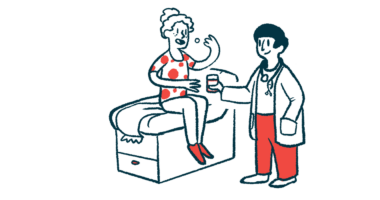3 important items that help me manage PNH and aplastic anemia
Staying organized is a crucial aspect of disease management

When I was diagnosed with paroxysmal nocturnal hemoglobinuria and aplastic anemia, my life became a disorganized mess. I received no warnings before the chaos ensued. It felt like I was trying to reach out and grab an issue so I could bring it close to me and resolve it. But all I ever caught was air.
When I’m disorganized, I can’t think clearly. It’s hard for me to concentrate and find a resolution. My body fills with tension and pressure when I’m overwhelmed. I try to navigate the mayhem but struggle mentally, physically, and emotionally.
My caregivers stepped in to help me cope with the stress of disease management. The simple but monumental purchase of three basic items made the transition easier.
If you’re dealing with the chaos of health issues and want to take back some control, I hope this list speaks to you.
1. Binder
Purchasing a three-ring binder saved my life. My mom had the wonderful idea to always keep my blood counts and other test results on hand. The binder goes with me to every doctor appointment as if attached to my hip.
Whenever I have a complete blood count performed, we ask for a copy of my results, which we then hole-punch and add to the binder in chronological order. Since I know I’m privy to my health history, I never feel embarrassed for asking for a copy of my results. It also shows I take my health seriously.
Having all my test results in a binder has come in handy many times. When I was searching for a blood disorder specialist, we visited a doctor who needed a copy of my health history. My mom proudly handed over the binder, and staff kept it for a couple days to make copies. Days later, I had a follow-up appointment with the doctor, who’d been able to easily review copies of my history.
This binder helped to speed along the process of meeting with doctors and allowed my appointments to be more thorough. Even if my caregivers and I didn’t know an answer to a question, we felt great when we were able to quickly look it up in the binder. Compiling and organizing my records also empowered me, as I felt I’d taken some control over my healthcare.
2. Pill organizer
When I was taking 30 pills a day, keeping track of all the timing and dosages was overwhelming. My mom could tell I was stressed one day as I scanned the pill bottles lined up in front of me, so she went out and purchased a seven-day pill organizer.
I then created a schedule of the days and times I needed to take each medicine, which I relied upon as I filled the pill organizer each week. Having a system in place meant I was less likely to forget to take my medicine. This was important, as my head was often scrambled with other stressors.
3. Journal
After my diagnosis, my caregivers purchased a journal for me as a safe space to write down my feelings. At first, I didn’t know what to write. My head was jumbled and I didn’t know how to express what I was going through.
Little by little, I became more comfortable with writing about my feelings. I never pressured myself to write pages and pages; I’d share as much or as little as my heart desired. Sometimes my entries were just bullet points, and other times, they were letters to my future self.
This therapeutic practice helped me to focus on myself. Some of the pages became covered in tear stains, but no matter my feelings, I was able to express them in a healthy manner.
All three items were inexpensive but brought priceless value to my life. Please comment below if you’ve purchased something that made a tremendous impact on your health journey and disease management.
Note: PNH News is strictly a news and information website about the disease. It does not provide medical advice, diagnosis, or treatment. This content is not intended to be a substitute for professional medical advice, diagnosis, or treatment. Always seek the advice of your physician or other qualified health provider with any questions you may have regarding a medical condition. Never disregard professional medical advice or delay in seeking it because of something you have read on this website. The opinions expressed in this column are not those of PNH News or its parent company, Bionews, and are intended to spark discussion about issues pertaining to paroxysmal nocturnal hemoglobinuria.




